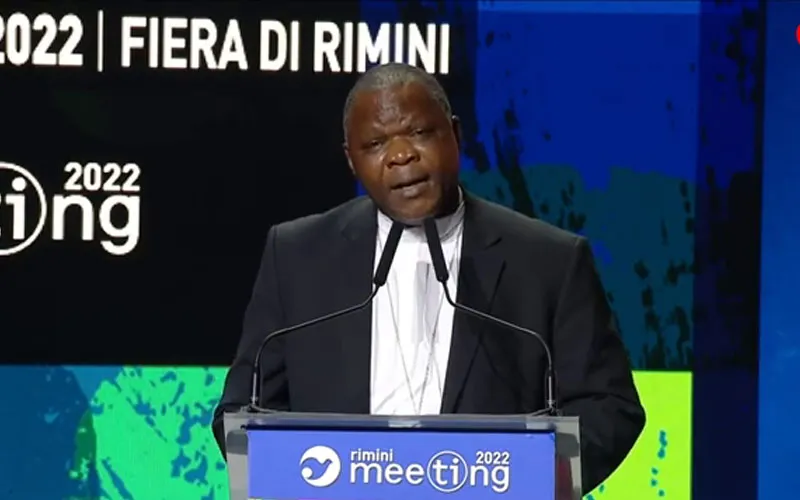Bangui, 23 August, 2022 / 10:00 pm (ACI Africa).
The Cardinal in the Central African Republic (CAR) has decried the numerous ongoing violent conflicts in the world and cautioned against the “logic of war and supremacy”, describing them as real threats to humanity.
In his presentation at the ongoing 43rd Meeting of Friendship Among Peoples (Rimini Meeting) in Italy, Dieudonné Cardinal Nzapalainga underscored the need for peace across the globe, saying, “The world today is really in need of peace. Peace is becoming the most precious good that humanity is seeking.”
“The logic of war and supremacy is a real threat to the human race and to our world, which is suspended from the unbridled appetites of the nuclear powers,” Cardinal Nzapalainga said on the first day of the August 20-25 meeting in the Italian city of Rimini.
Inaugurated in 1980, the Rimini Meeting was born out of a desire of some friends from the Italian city "to meet, get to know, and bring to Rimini everything good and beautiful that is present in the culture of those times." It has since been described as "an encounter among persons of different faiths and cultures; a place for friendship where peace, socialization, and a friendship among peoples may be established".
Held annually during the last week of August in Rimini, the city that is situated on the Adriatic coast in Italy’s Emilia-Romagna region, the weeklong meeting brings together "great political personalities, managers, representatives of different religions and cultures, intellectuals and artists, athletes and protagonists of the world scene visit it".








